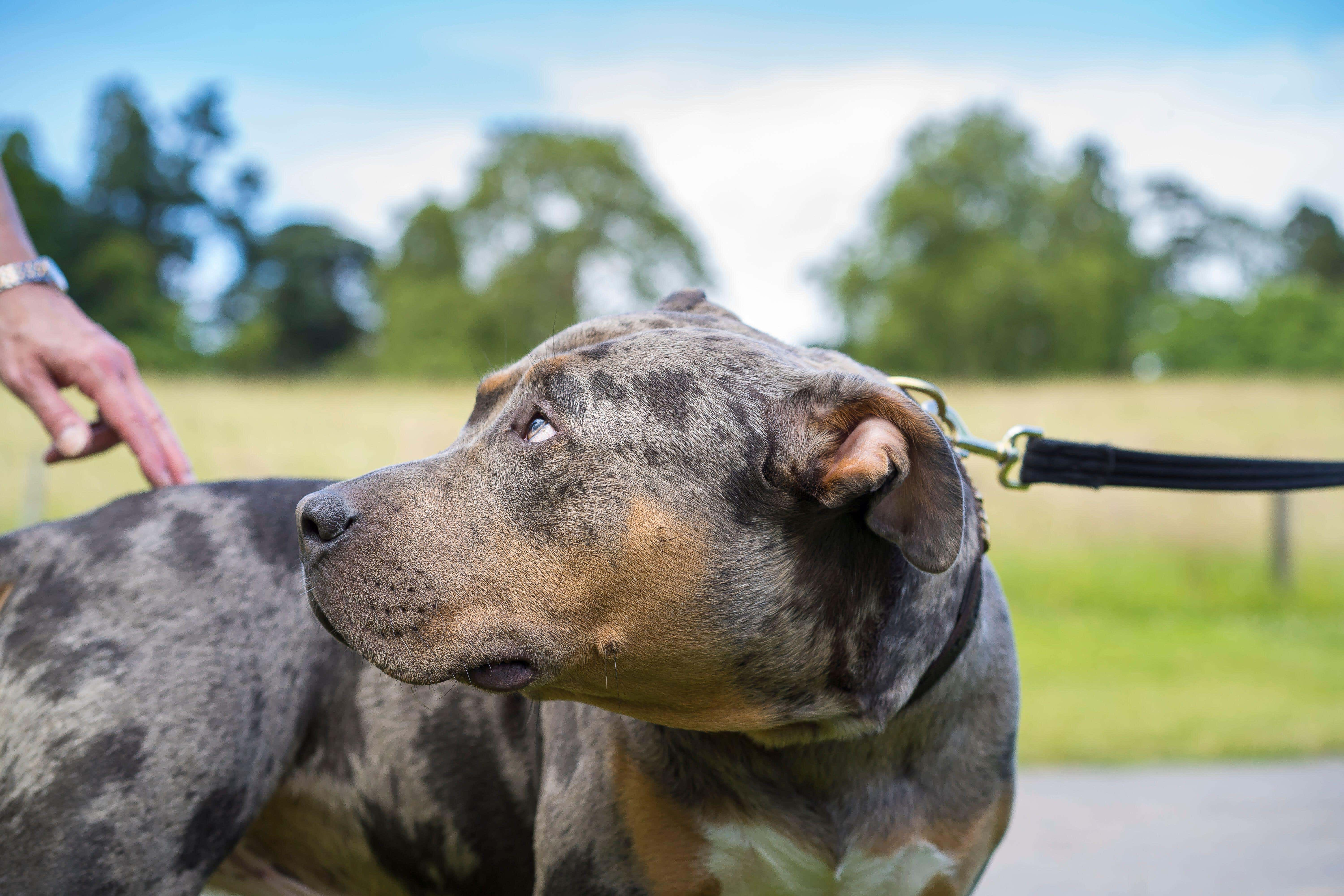How the ban on XL bully dogs from midnight tonight could trigger more – not fewer – attacks
Why? Because the temptation for owners who won’t play by the new rules will be to hide their dogs indoors, says Kit Yates. And a frustrated dog is an even bigger XL danger…


When the government’s controversial ban on American XL bully dogs in England and Wales comes into force at midnight tonight, owners without a certificate of exemption – which requires a payment of almost £100 per animal, proof of third-party liability insurance, and registration to have been completed before midday today – will have little option but to have their dogs put down.
Alternatively, they may simply choose to keep their pets out of sight – with potentially devastating consequences.
Not only are shelters braced for a rise in abandonments and a rise in injured dogs – the result of botched attempts by owners to put down their pets themselves – according to senior vet David Martin, who advises 900 vet practices across the UK, the number of attacks by XL bullys in the home could actually rise: “We know a lot of the fatal attacks have occurred in the house or with dogs escaping. If we end up frustrating these dogs, if [they now can’t get] the exercise they need, is that going to run the risk of more attacks within the home?”
He is also concerned that people who want aggressive dogs as status symbols will simply go for different breeds. Anecdotal evidence from former XL bully breeders is that buyers are switching to the Caucasian Shepherd – which, according to one, is "larger, more powerful and potentially more dangerous in the wrong hands".
The XL bully ban may turn out to be an example of an unintended consequence, which I refer to in my book, How to Expect the Unexpected, as a “boomerang”. Boomerangs are actions that, although potentially well-intentioned, can dramatically veer off course without due consideration for their potential consequences.
A subset of boomerangs that the British government has been known to suffer before are known as perverse incentives. These are incentives offered with the aim of achieving a particular goal which, unexpectedly, end up bringing about the opposite of the intended impact.
An alternative and commonly used name for the phenomenon is the cobra effect. The name derives from a story which goes back to the era of the British Raj in India.
Bureaucrats in Delhi became concerned about the number of venomous snakes in the city. In order to resolve the problem, they placed a bounty on each cobra’s head. Every cobra carcass brought to officials could be exchanged for a monetary reward. Soon after the announcement, thousands upon thousands of dead cobras began to pour in. The policy appeared to be a great success. However, not everything was quite as expected.
Rather than doing the hard work of going out and catching cobras, some entrepreneurial individuals had taken the initiative to set up lucrative cobra-breeding programmes to cash in.
While the British continued to buy up cobra corpses, the number of cobras on Delhi’s streets remained low. But as soon as the British got wind of the breeding ruse, they withdrew the bounty in order to remove the incentive for these rogue cobra farmers. Of course, with no viable income stream, the temporary serpent-breeders couldn’t afford to support their now-worthless animals, so instead, decided to release the cobras, in huge numbers.
As a result, the story goes, the itinerant cobra problem became worse than it had ever been.
The British made a similar mistake in Afghanistan. In 2000, the Taliban’s then leader, Mullah Omar, declared opium un-Islamic, despite it being a lucrative source of income. Wary of the impact of disobeying the Taliban’s orders, Afghan farmers reduced their output by nearly 90 per cent in a year.
Following the overthrow of the Taliban in 2001, after the US-led invasion, Afghan farmers quickly went back to planting poppies. With the US military focused on hunting for al-Qaeda targets, including Osama Bin Laden, President Bush called upon his Nato allies to help control the country’s resurgent opium-production problem.
Without the same power of coercion of the former Taliban leaders, the British decided to offer a carrot rather than a stick. Afghan farmers were to be offered $700 for every acre of poppy crops they destroyed. For many, this represented an absolute fortune, and tens of thousands of acres were quickly destroyed.
Unfortunately, far more were planted to compensate for the fields that were lost, and many farmers harvested the opium sap before destroying the poppies, ensuring they reaped a double payday. By the time the British eventually pulled out of Afghanistan, four times as much land was being used to cultivate poppies than before the introduction of their incentive scheme.
Whether the XL bully ban will turn out to be a boomerang or not remains to be seen. However, it seems unlikely, in the absence of tighter regulation on dog owners, that the XL bully ban will be a sufficient measure, on its own, to solve the UK’s problem with dangerous dogs.
Join our commenting forum
Join thought-provoking conversations, follow other Independent readers and see their replies
Comments
Bookmark popover
Removed from bookmarks